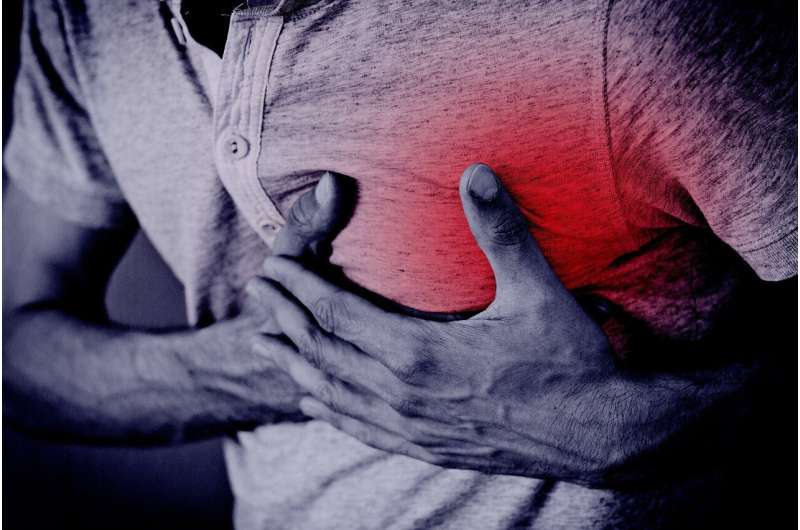This article has been reviewed according to Science X's editorial process and policies. Editors have highlighted the following attributes while ensuring the content's credibility:
fact-checked
peer-reviewed publication
trusted source
proofread
Why heart rhythm problems tend to happen early in the morning

Many studies have shown that potentially lethal heart rhythm disturbances ('ventricular arrhythmia') are more likely to occur in the morning, when people wake after a night's sleep, but until now the trigger mechanism has not been fully understood.
Now, research led by Imperial College London have revealed that these heart disturbances are linked to the natural surge of the stress hormone, cortisol, which peaks in our blood first thing in the morning.
In a study in mice, they found that cortisol binds to a specific receptor in heart cells. The receptor moves to the nucleus, where it influences the genes regulating ion channels in the cell membrane, which control heartbeats. As the activity of the ion channels changes, the heart becomes much more vulnerable since it is easier for the regular electrical impulses, which cause regular heartbeats, to break down into more chaotic activity or arrhythmia.
Cortisol's circadian, or day-night, rhythm is affected by sleep, with an increase in cortisol just minutes before an individual wakes up.
The discovery of the link also raises the prospect of new treatments in this field. Dr. D'Souza and colleagues went on to show that, in mice, injection of a drug that inhibits the cortisol receptor prevents the morning changes in ion channels and so also the morning vulnerability to heart rhythm disturbances.
Lead researcher Alicia D'Souza from Imperial's National Heart and Lung Institute (HNLI) says, "Our hearts are effectively different organs at different times of the day. They are more vulnerable first thing in the morning because of ancient circadian rhythms, which have evolved over millions of years. All species have this in common, so although our study is in mice, we believe this is directly applicable to human and mammalian hearts."
Professor James Leiper, Associate Medical Director at the British Heart Foundation, said, "Ventricular arrhythmias can strike at any time and, if left untreated, can lead to a loss of consciousness, sudden cardiac arrest, and death. It is crucial we continue to investigate the causes of these arrhythmias so we can take action to prevent them."
"This intriguing study in mice reveals a possible solution to the mystery of why ventricular arrhythmias are more common in the morning. Identifying a rise in cortisol as the culprit could allow us to explore new treatment options that could reduce arrhythmias in those most at risk. Further research will be necessary to establish whether these findings are also seen in humans."
This study is the latest in a series in which Dr. D'Souza and Professor Mark Boyett from the University of Bradford have been exploring why the electrical activity of the heart shows an important day-night rhythm and why the heart is vulnerable to different arrhythmias at different times of the day or night.
The paper is published in the journal Circulation Research.
More information: Roman Tikhomirov et al, Cardiac GR Mediates the Diurnal Rhythm in Ventricular Arrhythmia Susceptibility, Circulation Research (2024). DOI: 10.1161/CIRCRESAHA.123.323464





















